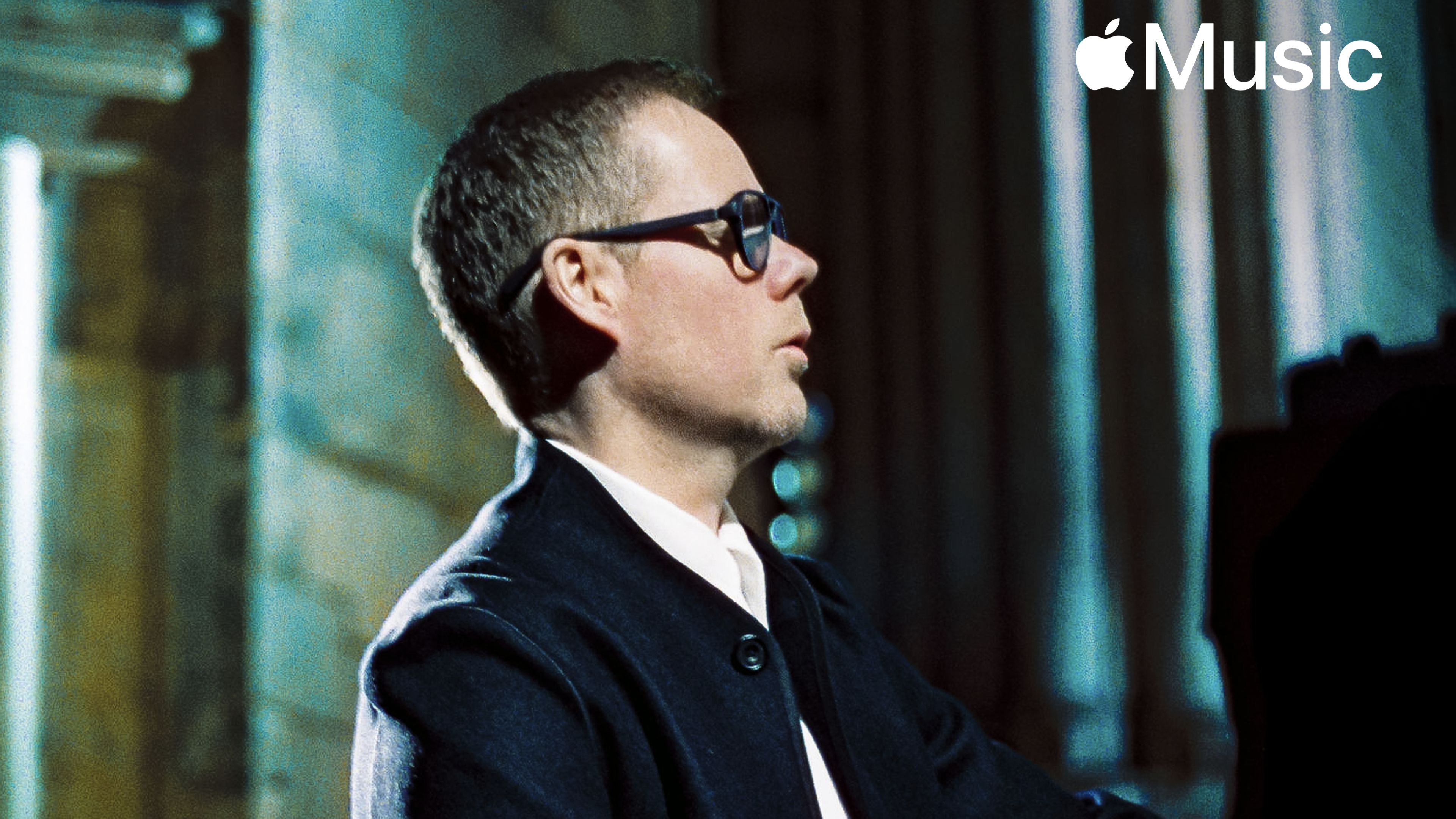How to listen to David Bowie's songs in chronological order
A map of his releases

The latest hi-fi, home cinema and tech news, reviews, buying advice and deals, direct to your inbox.
You are now subscribed
Your newsletter sign-up was successful
What if you were to listen to the entirety of David Bowie's tremendous catalogue in chronological order?
It's the kind of idea you might have when you're under lockdown – but it's quite the undertaking. After all, if you take into account every studio album, single, EP, live album and soundtrack, then add to it every record Bowie helped produce and write, you're already well into the hundreds.
Nevertheless, that is precisely what we've done. And so you don't have to do the same, we've put together playlists on Spotify and Tidal – in the order of each song's first major release – and produced a thorough guide which you can find below.
So set aside a few days and take this journey with us through the catalogue of one of popular music's most undeniable geniuses.
- Listen to David Bowie in chronological order on Spotify
- Listen to David Bowie in chronological order on Tidal
Can't Help Thinking About Me
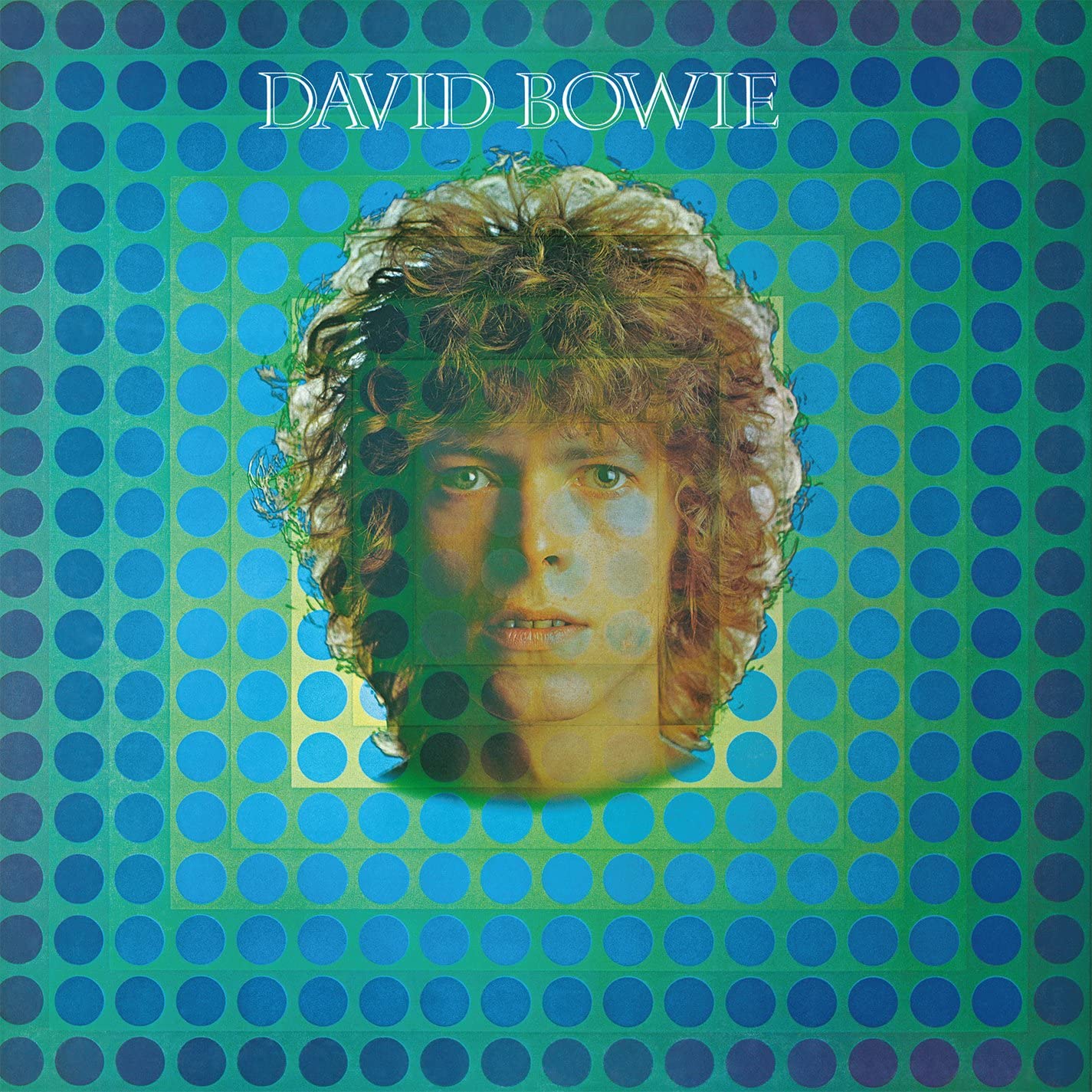
It would be harsh to suggest Bowie got off to a false start – artistically, at least – but the mid-1960s were more formative for the young musician than critically successful. Born David Robert Jones, in Brixton in 1947, he initially played around with his first name – going by Davie and Davy Jones early in his career – before appearing as David Bowie (inspired by the Bowie knife) for the first time on 1966's Can't Help Thinking About Me.
After his debut album David Bowie failed to chart in 1967, two years passed between the release of Love You Till Tuesday – the second single from that record – and Space Oddity on 11th July 1969. It reached number five in the UK charts, and his second self-titled album was released that November (and re-released in 1972 as Space Oddity).
Studio releases 1964-1969 (Albums and singles/EPs)
The latest hi-fi, home cinema and tech news, reviews, buying advice and deals, direct to your inbox.
Liza Jane [Davie Jones with the King Bees]; I Pity The Fool [with The Manish Boys]; You've Got A Habit Of Leaving [Davy Jones]; Can't Help Thinking About Me [David Bowie with The Lower Third]; Do Anything You Say; I Dig Everything; Rubber Band; The Laughing Gnome; David Bowie; Love You Till Tuesday; Space Oddity; David Bowie [later Space Oddity].
The Jean Genie

The 1970s began with a signal that Bowie was unafraid to experiment, with the release of Regazzo solo, ragazza sola, a reworked version of Space Oddity with Italian lyrics. And so his most fruitful decade continued.
Almost a year after the release of his last album, Bowie released The Man Who Sold The World in November 1970, following up again with Hunky Dory the following December.
By June 1972 it was the turn of perhaps Bowie's best-known work in the shape of The Rise And Fall Of Ziggy Stardust And The Spiders From Mars. It was by then actually a fairly familiar piece of work, thanks to the Moonage Daydream and Starman singles – with Hang On To Yourself and Suffragette City appearing as B-sides.
The album Live In Santa Monica 72, released in 2018, was recorded on the 20th October that year, capturing Bowie and the band at a giddy height – but that gig was surrounded by releases of work he'd done largely on the other side of the mixing desk.
Bowie's first production credit for another artist came on the 8th September 1972, with the release of Mott The Hoople's All The Young Dudes – he also played sax on the record and wrote the title track – and was quickly followed two months later with Lou Reed's sensational Transformer, which he and Reed co-produced.
The following year began with his first collaboration with Iggy Pop, co-producing Iggy & The Stooges' Raw Power before, on the 13th April 1973, Bowie released his first UK No1 album with Aladdin Sane. Not yet done for the year, he recorded the Ziggy Stardust motion picture in July (released as a soundtrack in 1983) and on the 19th October released Pin Ups, his seventh studio album.
Two more collaborations debuted in early 1974 – Mick Ronson's Slaughter On 10th Avenue, for which Bowie co-wrote three songs, and Steeleye Span's To Know Him Is To Love Him featuring another turn on alto sax – before the album Diamond Dogs came out in May to score a third straight UK No1.
David Live was Bowie's first live album release in October. It was recorded that summer, shortly before a show in Los Angeles that was released in 2017 as the live album Cracked Actor.
Studio releases 1970-1974 (Albums and singles/EPs)
Regazzo solo, ragazza sola; The Prettiest Star; Memory Of A Free Festival Part 1; The Man Who Sold The World; Holy Holy; All The Madmen; Moonage Daydream; Hunky Dory; Changes; Starman; The Rise And Fall Of Ziggy Stardust And The Spiders From Mars; John, I'm Only Dancing; The Jean Genie; Drive-In Saturday; Aladdin Sane; Time; Life On Mars; Let's Spend The Night Together; Sorrow; Pin Ups; Rebel Rebel; Rock 'n' Roll Suicide; Diamond Dogs; Diamond Dogs; Knock On Wood (live); Rock 'n' Roll With Me (live).
"Heroes"

Having opened 1975 with Young Americans in March, Bowie scored his first of five UK No1 singles with a new recording of Space Oddity. In January 1976 it was the turn of Station To Station, with a concert at Nassau Coliseum recorded on the 23rd March that was released as a live album in 2017, before another double album year in 1977.
This pair of classic albums sandwiched two tracks produced for and with Iggy Pop. First came Bowie's Low, on the 14th January, then on the 18th March Iggy released The Idiot, with Bowie producing, co-writing and contributing vocals, guitar, keys and sax.
Lust For Life released next, on the 29th August, before the year closed with "Heroes", which included singles releases of its title track in English, German (Helden) and French (Héros).
1978 was a year off, as far as studio albums were concerned, but Bowie still managed to narrate Prokofiev's Peter and The Wolf in May, co-produce Iggy Pop's TV Eye: 1977 and record summer concerts for Stage (1978), Live In Berlin and Welcome To The Blackout (both 2018).
Bowie's busiest decade, which had also included two feature film roles in 1976's The Man Who Fell To Earth and Just A Gigolo in 1978, ended with Lodger in May 1979.
Studio releases 1975-1979 (Albums and singles/EPs)
Young Americans; Young Americans; Fame; Space Oddity; Golden Years; Station To Station; TVC 15; Suffragette City; Stay; Low; Sound And Vision; Be My Wife; Heroes/Helden/Héros; "Heroes"; Beauty And The Beast; David Bowie Narrates Prokofiev's Peter and the Wolf; Breaking Glass (live); Boys Keep Swinging; Lodger; DJ; Yassassin; Look Back In Anger; Revolutionary Song; John, I'm Only Dancing (Again).
Scary Monsters (And Super Creeps)
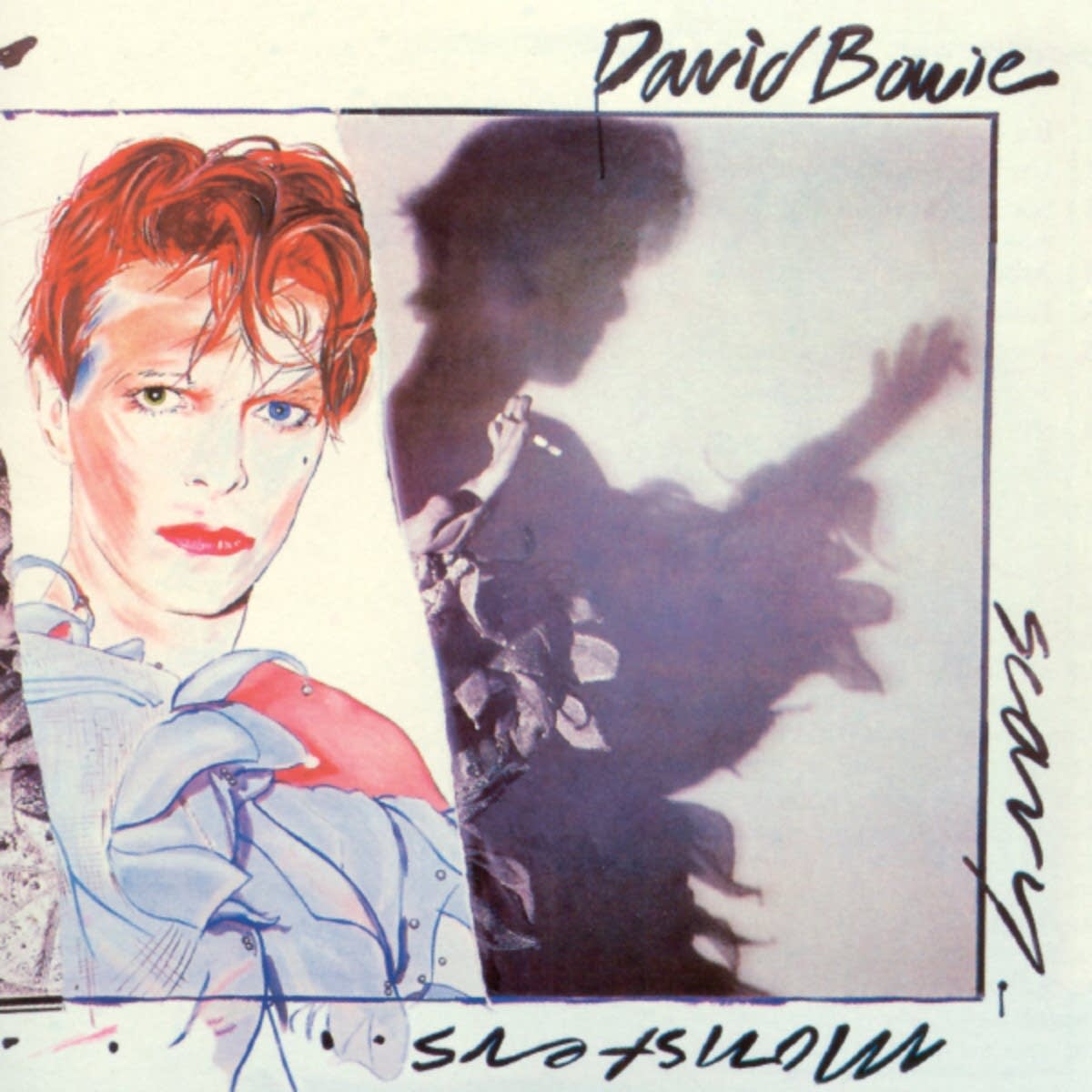
As Iggy Pop released Soldier, including the co-written song Play It Safe, in February 1980, Bowie made his version of Alabama Song his first offering of the decade. But it was in August he made his big splash, with Ashes To Ashes, his second UK No1 single and the first of four in five years.
The album Scary Monsters... And Super Creeps followed on the 12th September (his first No1 album since 1974's Diamond Dogs), with a well-received The Best Of Bowie compilation hitting shelves just before Christmas.
April 1981 saw Bowie release his first soundtrack album, for the German film Wir Kinder vom Bahnhof Zoo, made up of tracks from Lodger, "Heroes" and Station To Station. In October, he scored another another No1 single, thanks to a collaboration with Queen on Under Pressure.
Though Bowie released his Baal EP and contributed to Giorgio Moroder's score for the film Cat People in 1982, we'd have to wait until 1983 for another studio album.
Let's Dance, released on the 14th April and was preceded by its title track reaching No1 in the singles charts a month earlier, his last number one as a solo artist. He wasn't done for the year, however, finally being able to release Ziggy Stardust: The Motion Picture (recorded in 1973) in October, with 2018's live album Serious Moonlight being recorded the month before.
And Bowie made it three UK No1 albums in a row when he released Tonight in 1984, bringing his total to six.
Studio releases 1980-1984 (Albums and singles/EPs)
Alabama Song; Crystal Japan; Ashes To Ashes; Scary Monsters... And Super Creeps; Fashion; It's No Game (Part 1); Scary Monsters (And Super Creeps); Up The Hill Backwards; Don't Be Fooled By The Name; Under Pressure [Queen and David Bowie]; Wild Is The Wind; Baal; Cat People (Putting Out Fire); Peace On Earth/Little Drummer Boy [David Bowie and Bing Crosby]; Let's Dance; Let's Dance; China Girl; Modern Love; White Light/White Heat (live); Without You; Blue Jean; Tonight; Tonight.
Magic Dance
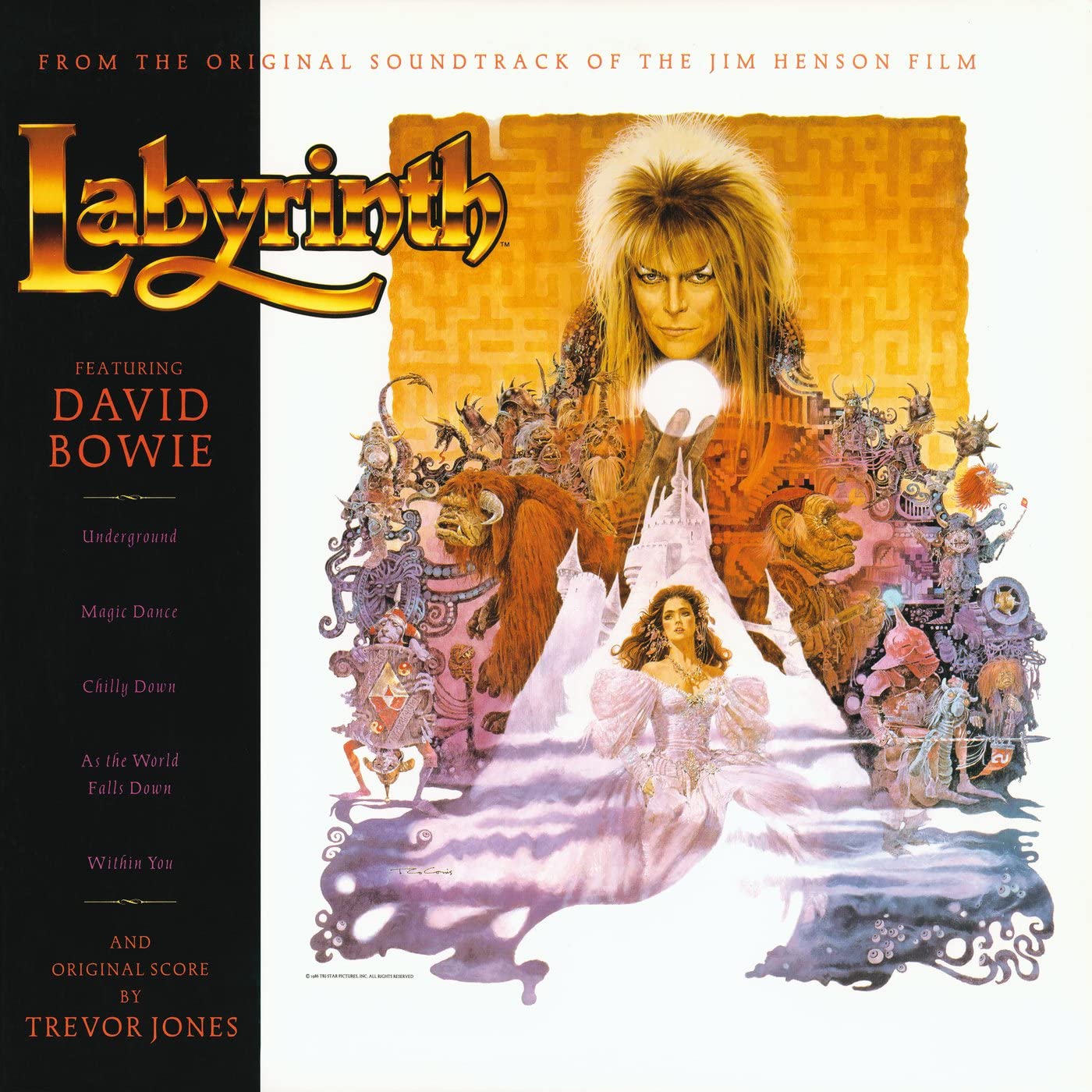
Having released singles supporting his album Tonight since it came out in September 1984, in August 1985 Bowie returned with Rolling Stone Mick Jagger to score a last-ever UK No1 single with their duet Dancing In The Street.
The following year was one of co-production and soundtracks, contributing three tracks to the feature film Absolute Beginners before scoring Jim Henson's Labyrinth alongside Trevor Jones and co-producing, co-writing and mixing Iggy Pop's Blah-Blah-Blah.
Bowie's final solo album of the 1980s was April 1987's Never Let Me Down, which was warmly met but ultimately failed to top the charts. He then joined forces with Reeves Gabrels, Tony Fox Sales and Hunt Sales to form the group Tin Machine.
The band released their self-titled debut on the 22nd May 1989 and followed it up with a trio of singles squeezed in just before the turn of the year.
Studio releases 1985-1989 (Albums and singles/EPs)
This Is Not America; Loving The Alien; Dancing In The Street [David Bowie and Mick Jagger]; Absolute Beginners; Underground; Labyrinth [soundtrack]; When The Wind Blows; Magic Dance; Day-In Day-Out; Never Let Me Down; Time Will Crawl; Never Let Me Down; Tonight (live) [Tina Turner and David Bowie]; Tin Machine [with Tin Machine]; Under The God [w/ TM]; Maggies Farm (live)/Tin Machine [w/ TM]; Prisoner Of Love [w/ TM].
Black Tie White Noise
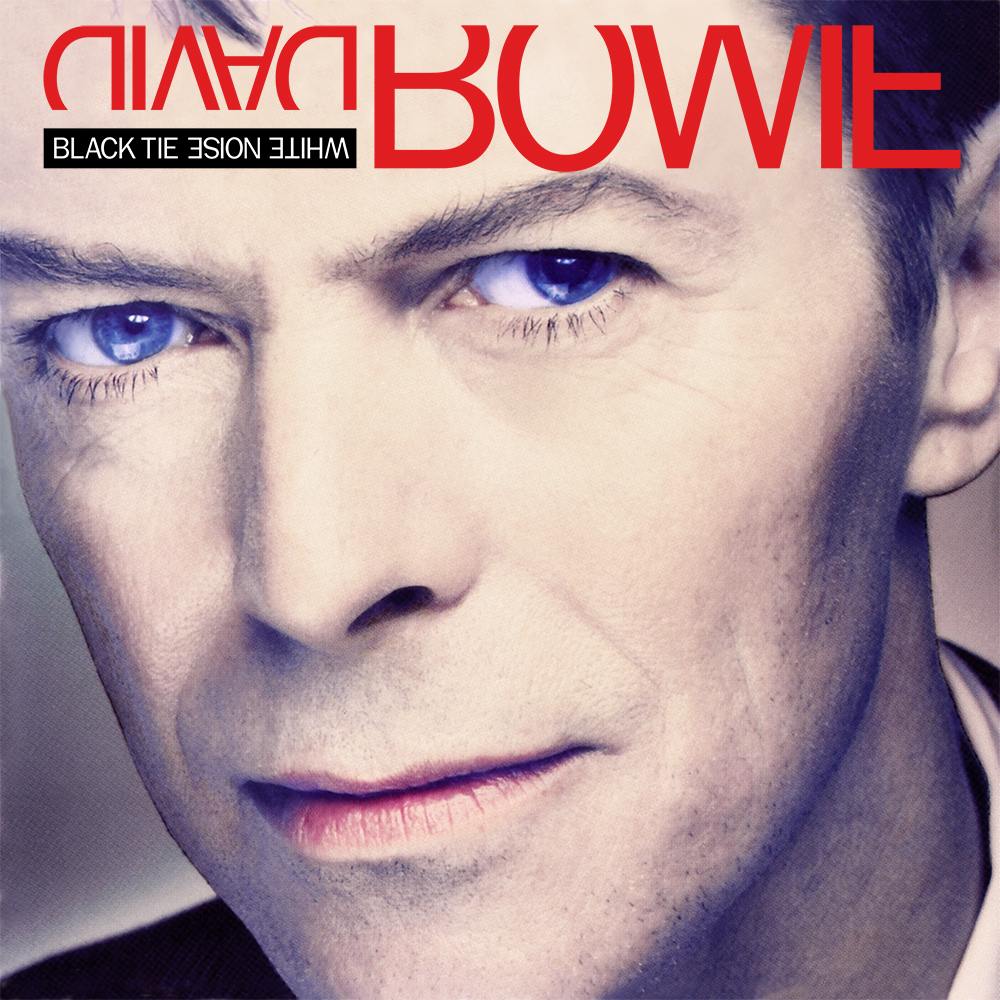
After the release of the ChangesBowie compilation that reached No1 in the UK in March 1990, supported by the single Fame 90, and Adrian Belew's Young Lions – for which Bowie wrote Pretty Pink Rose and co-wrote Gunman – the early 90s was again a time for Tin Machine.
Among a number of singles, the band released Tin Machine II in September 1991 and Tin Machine Live: Oy Vey, Baby the following year, before Bowie returned with his seventh solo No1 album in April 1993.
Black Tie White Noise spent a total of 11 weeks in the UK Top 40, shortly after which the soundtrack to BBC series The Buddha Of Suburbia was released, supported by a duet of the show's theme song with Lenny Kravitz.
The first year in decades without a specific Bowie release, 1994 did at least feature him contributing vocals to Like A Rolling Stone on Mick Ronson's album Heaven and Hull.
Studio releases 1990-1994 (Albums and singles/EPs)
Fame 90; You Belong In Rock 'n' Roll [w/ TM]; Tin Machine II [w/ TM]; Baby Universal [w/ TM]; One Shot [w/ TM]; Real Cool World; Jump They Say; Black Tie White Noise; Miracle Goodnight; The Buddha Of Suburbia [soundtrack]; The Buddha of Suburbia [feat. Lenny Kravitz].
The Pretty Things Are Going To Hell
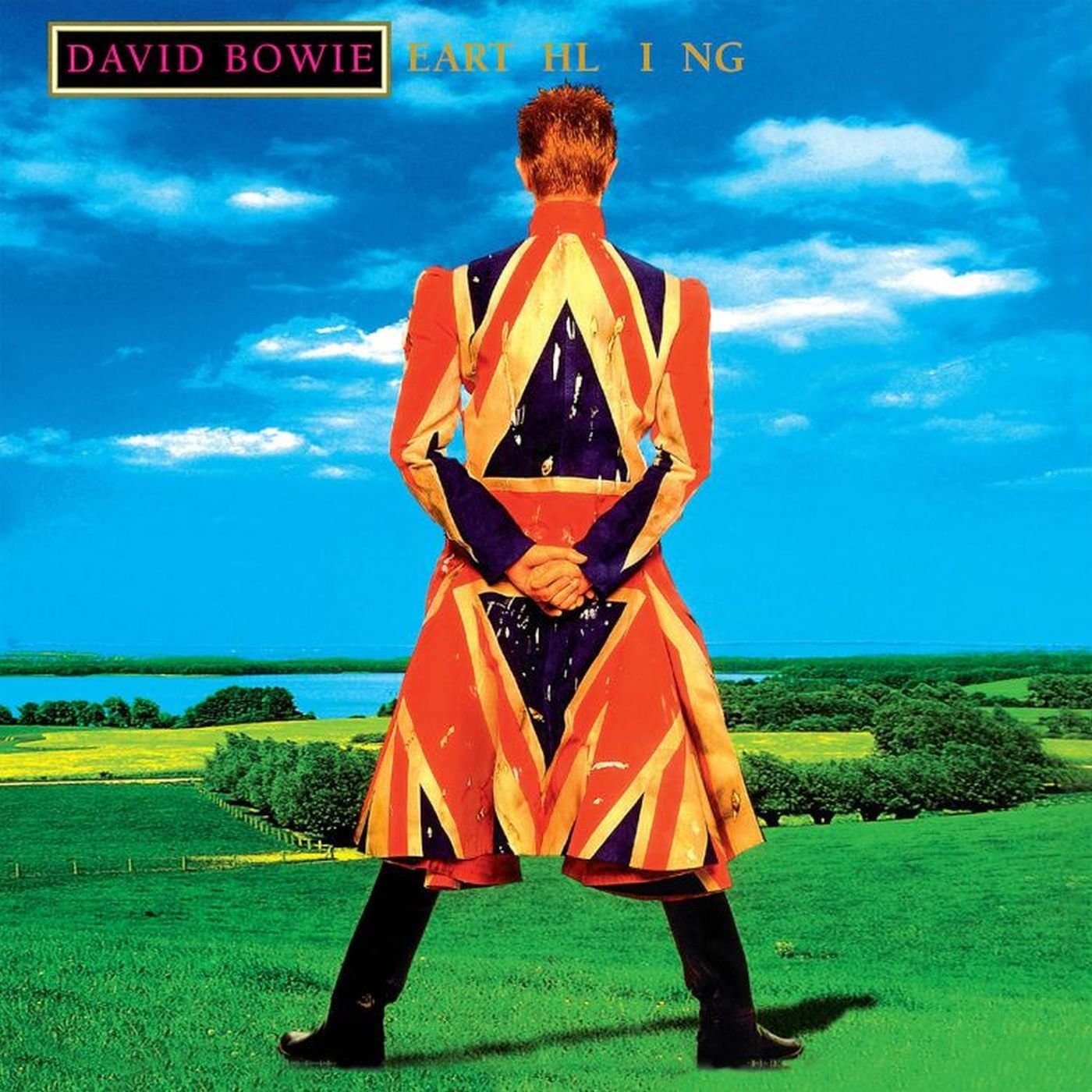
We would have to wait until October 1995 for Bowie's next studio album, titled 1. Outside, but it was preceded in the year by Reeves Gabrels's The Sacred Squall Of Now – for which Bowie provided vocals and guitar on tracks You've Been Around and The King Of Stamford Hill – and People From Bad Homes by Ava Cherry & The Astronettes, which Bowie produced and for which he wrote the songs I Am Divine, I Am Laser, People From Bad Homes and Things To Do.
There was a version of Hallo Spaceboy with Pet Shop Boys released as a single in 1996, before the next studio album, Earthling, hit shelves in February 1997.
Bowie's voice was next heard on a studio album the following January, this time that of electronic producer Goldie, providing guest vocals for Saturnz Return's second track Truth.
Such vocal contributions continued in 1999, firstly with Jewel from Reeves Gabrels's album Ulysses (Della Notte) and then the single Without You I'm Nothing with Placebo, before Hours... became Bowie's 21st studio album when it was released that October.
Studio releases 1995-1999 (Albums and singles/EPs)
The Hearts Filthy Lesson; 1. Outside; Strangers When We Meet; Hallo Spaceboy [feat. Pet Shop Boys]; Telling Lies; Little Wonder; Earthling; Dead Man Walking; Seven Years In Tibet; I'm Afraid Of Americans; The Ice Storm; Without You I'm Nothing [Placebo feat. David Bowie]; Thursday's Child; The Pretty Things Are Going To Hell; Hours... ; Under Pressure (Rah Mix) [Queen and David Bowie].
Rebel Never Gets Old
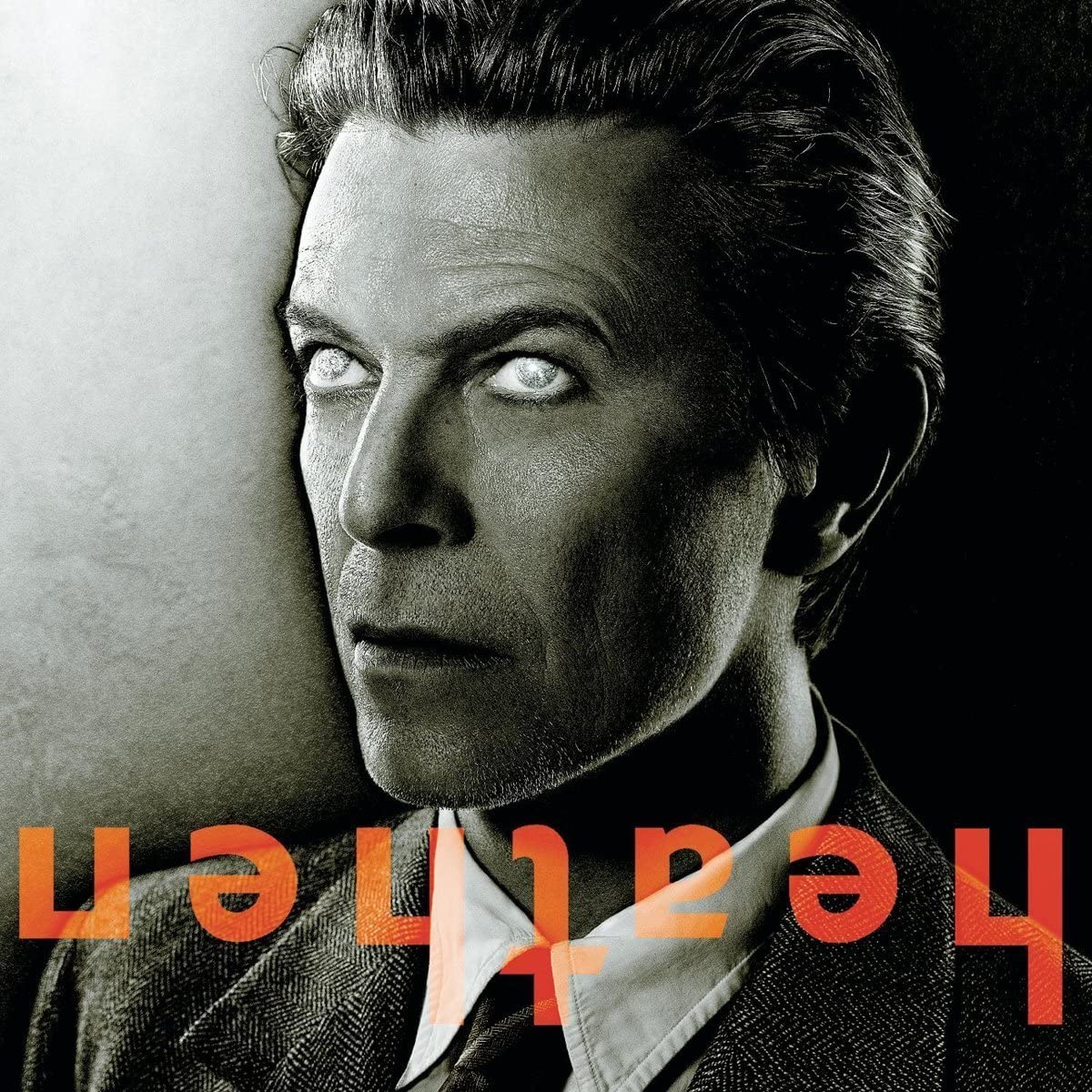
Bowie marked the beginning of the new millennium with a blistering Glastonbury headline set – released in its entirety in 2018 – but didn't come out with a new record until Heathen in June 2002.
Not that he'd been nowhere to be seen. Among a few singles, he contributed the song Nature Boy to Baz Luhrmann's Moulin Rouge! soundtrack in May 2001, guest vocals to Sector Z and Man Without A Mouth by Rustic Overtones the following month, released the compilation of instrumentals All Saints a month after that, and was heard on the track American Dream alongside P. Diddy for the film Training Day that September.
Heathen peaked at No5 in the UK albums chart upon its release in 2002, but there was a ninth UK No1 album in the offing later in the year thanks to another Best Of Bowie compilation.
Having sung on the song Hop Frog from Lou Reed's The Raven, released in January 2003, Bowie released his own studio album Reality – the last for almost ten years – that September, later recording two shows that would be released as A Reality Tour in 2010.
Not that the time between Reality and his next album would be barren. A remixes album named Club Bowie was released in December 2003, he sang on and co-wrote the song Isn't It Evening (The Revolutionary) with Earl Slick the same month, and sang Changes with Butterfly Boucher for the soundtrack to Shrek 2.
Having put out singles Never Get Old and Rebel Never Gets Old in 2004, he was heard on Kristeen Young's Saviour that December, and singing (She Can) Do That on the Stealth soundtrack in 2005. Those with a keen ear might also have heard him providing backing vocals on the track Province from TV On The Radio's superb Return To Cookie Mountain.
He and David Gilmour released their duetted version of Arnold Layne as a single in December 2006, and Bowie collaborated with Scarlett Johansson for two songs – Falling Down and Fannin Street – from her album Anywhere I Lay My Head in May 2008.
Studio releases 2000-2009 (Albums and singles/EPs)
Seven; Slow Burn; Heathen; Everyone Says 'Hi'; I've Been Waiting For You; Reality; New Killer Star; Never Get Old; Rebel Never Gets Old; Arnold Layne [David Gilmour with David Bowie].
The Stars (Are Out Tonight)
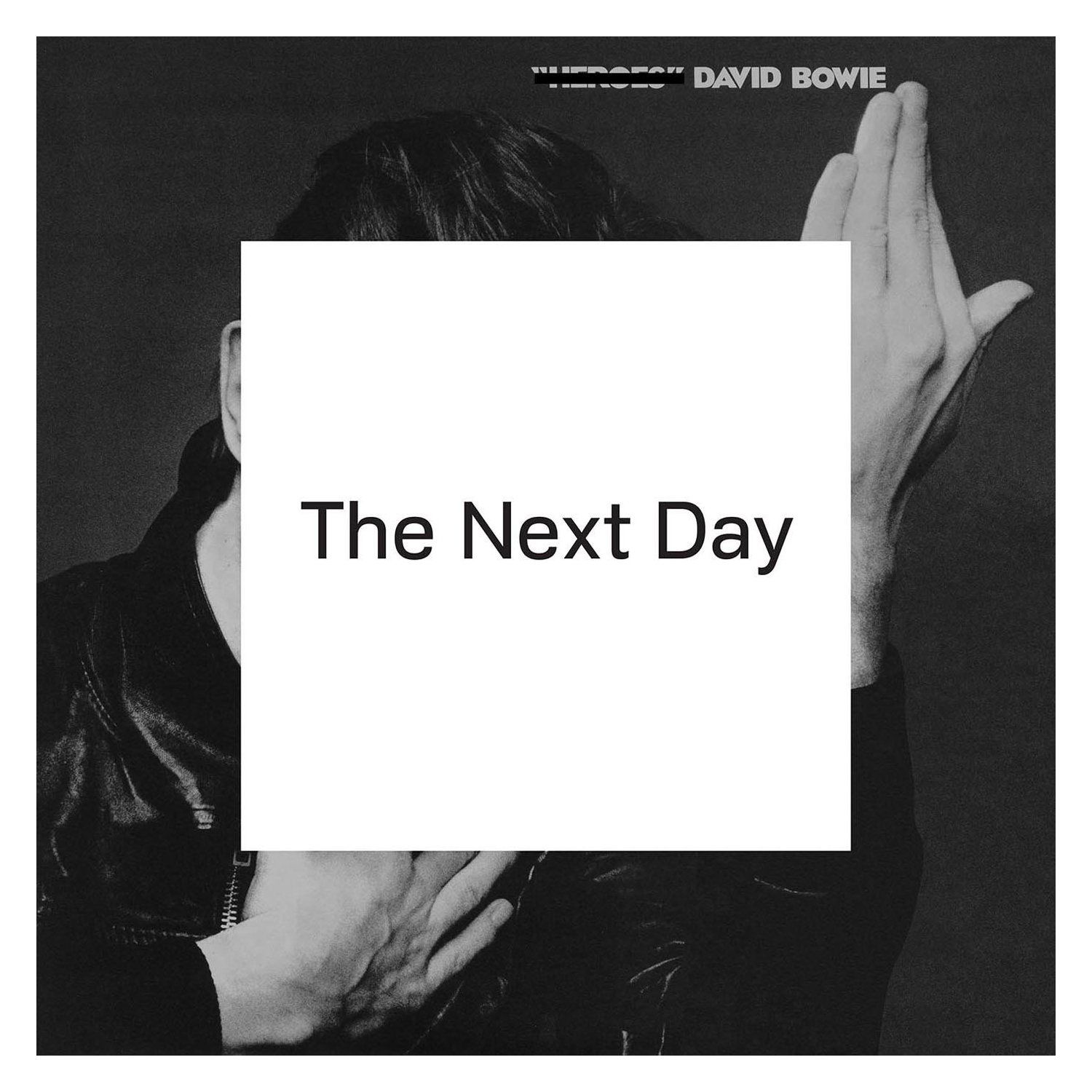
It was January 2013 before we heard from Bowie again in this new decade, the release of singles Where Are We Now? and The Stars (Are Out Tonight) preceding 26th solo studio album – and tenth UK No1 – The Next Day on 8 March.
After the release of Arcade Fire's Reflektor, on which Bowie sang backing vocals, there was The Next Day Extra EP in November 2013 and a remix of Love Is Lost by LCD Soundsystem's James Murphy rounding off an exciting year.
New material was released again in November 2014, with the singles Tis Pity She Was A Whore and Sue (Or In A Season Of Crime), and again almost exactly a year later when Bowie gave us the singles Blackstar and Lazarus.
These four tracks would appear alongside Girl Loves Me, Dollar Days and I Can't Give Everything Away on Bowie's 69th birthday, 8 January 2016, when he released his 25th and final solo studio record – and 11th UK No1 – Blackstar.
A number of posthumous releases have surfaced since Bowie's passing only two days later – including the Lazarus musical soundtrack in October 2016, the Bowie Legacy compilation a month later and No Plan EP in January 2017 – but Blackstar remains his truest and most poignant parting gift.
Studio releases 2010-2016 (Albums and singles/EPs)
Where Are We Now?; The Stars (Are Out Tonight); The Next Day; The Next Day; Valentine's Day; The Next Day Extra; Love Is Lost (Hello Steve Reich mix by James Murphy); Tis Pity She Was A Whore; Sue (Or In A Season Of Crime); Blackstar; Lazarus; Blackstar.
- Listen to David Bowie in chronological order on Spotify
- Listen to David Bowie in chronological order on Tidal
MORE:
